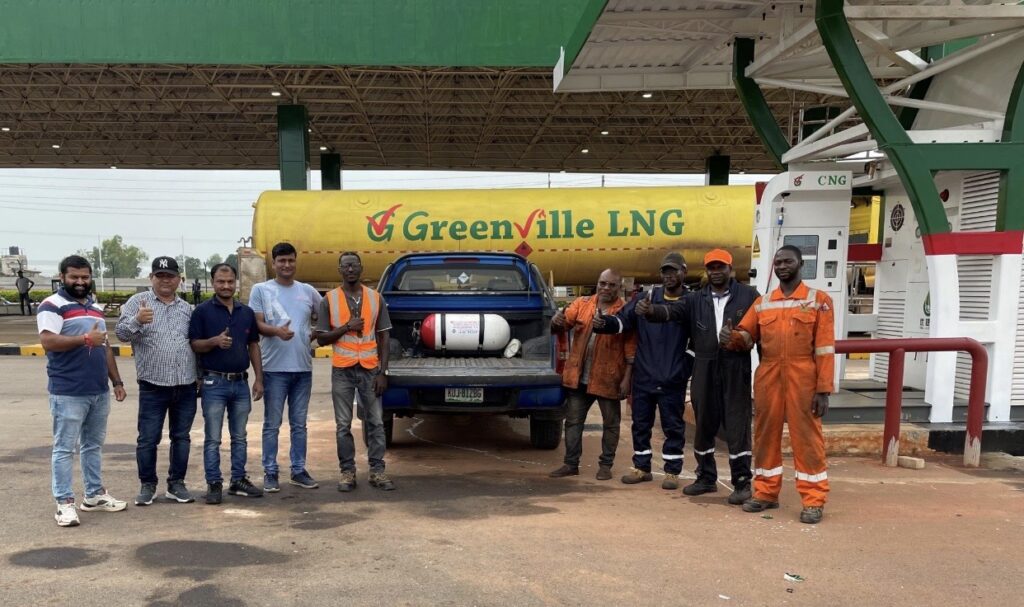On Tuesday, October 24, Greenville LNG launched the first-ever Liquefied Compressed Natural Gas station in Nigeria.
This is according to a statement via the company’s official page on LinkedIn.
The Liquefied Compressed Natural Gas (L-CNG) station, situated in Kaduna state, marks a significant milestone in Nigeria’s energy landscape.
This pioneering L-CNG station, the first of its kind in the country, has been launched to tackle the persistent issue of fuel shortages and to bolster the distribution of natural gas.
This development is of great importance for several reasons.
First, it is crucial to understand that both liquefied natural gas (LNG) and L-CNG present highly attractive alternatives to conventional fuels.
They bring about substantial fuel cost savings, typically in the range of 15-20%, making them not only cost-effective but also environmentally friendly.
This shift towards cleaner and more economical energy sources is a step in the right direction for Nigeria’s energy sector.
The L-CNG station, according to the company, is not just a solution to current energy challenges.
It is also a catalyst for economic growth, particularly in Kaduna state.
By promoting the use of L-CNG, this initiative supports local businesses and revitalizes the transport sector, thus creating economic opportunities and job prospects in the region.
Future plans
Greenville LNG’s ambitious plan involves establishing 25 L-CNG distribution hubs across the country, which will serve as reliable sources of energy for fuel stations.
This concerted effort is a significant step towards making a sustainable and environmentally responsible future a reality for Nigeria.
It not only addresses the need for cleaner energy sources but also bolsters the nation’s energy infrastructure and local economies.
Backstory
In August 2023, the Tinubu administration shifted its focus to Compressed Natural Gas (CNG) as a substitute for petrol.
This transition occurred after the removal of fuel subsidies, causing a significant increase in pump prices, which now exceed N650 per litre in some areas.
To address this issue, the Nigerian National Petroleum Company Limited (NNPCL) entered into an agreement with Nipco Gas Limited.
This collaboration aims to establish CNG stations throughout the country, offering Nigerians a more affordable and sustainable option for fuel.
The project unfolds in two key phases:
Intra-City Phase (Q1/2024): The initial phase includes the establishment of 21 CNG stations, primarily focused on supporting transportation within cities. These stations are set to become operational by the first quarter of 2024.
Intercity Phase (2024): The second phase, set to be completed in 2024, involves the creation of 35 CNG stations geared towards intercity transportation, promoting the use of CNG for longer-distance travel.
These efforts are further reinforced by an additional 56 stations planned to be set up by NNPC Retail stations across the nation. Currently, Nipco Gas is already operating 14 CNG stations in various locations across Nigeria.
Notably, they’ve successfully converted over 7,000 vehicles to run on CNG, demonstrating their commitment to cleaner and more sustainable energy options.
What an L-CNG station means
An L-CNG refuelling station is a place where liquefied natural gas (LNG) is transformed into compressed natural gas (CNG) for refuelling CNG vehicles.
The primary equipment needed for such a station includes an LNG storage tank, an LNG pump, a gasifier, a group of gas cylinders, and a CNG filling machine.
